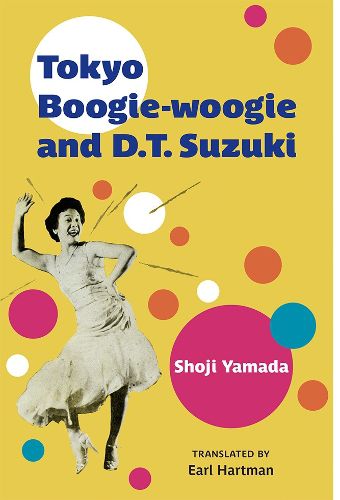Readings Newsletter
Become a Readings Member to make your shopping experience even easier.
Sign in or sign up for free!
You’re not far away from qualifying for FREE standard shipping within Australia
You’ve qualified for FREE standard shipping within Australia
The cart is loading…






Tokyo Boogie-woogie and D.T. Suzuki seeks to understand the tensions between competing cultures, generations, and beliefs in Japan during the years following World War II, through the lens of one of its best known figures and one of its most forgotten. Daisetsu Teitaro Suzuki (D.T. Suzuki) was a prolific scholar and translator of Buddhism, Zen, and Chinese and Japanese philosophy and religious history. In the post-war years, he was a central figure in the introduction of Buddhism to the United States and other English-language countries, frequently traveling and speaking to this end. His works helped define much of these interpretations of ‘Eastern Religion’ in English, as well as shape views of modern Japanese Buddhism. However, against this famous figure is a largely unknown or forgotten shape: Suzuki Alan Masaru. Alan was D.T. Suzuki’s adopted son and, though he remained within his father’s shadow, is mostly known as the lyricist of the iconic 60’s pop hit Tokyo Boogie Woogie. Perhaps due to his frequent scandals and the fraught nature of the relationship, he remains unmentioned and unstudied by scholars and historians. Yet by exploring the nature of the relationship between these two, Professor Yamada digs into the conflicting memories and experiences of these generations in Japan.
$9.00 standard shipping within Australia
FREE standard shipping within Australia for orders over $100.00
Express & International shipping calculated at checkout
Tokyo Boogie-woogie and D.T. Suzuki seeks to understand the tensions between competing cultures, generations, and beliefs in Japan during the years following World War II, through the lens of one of its best known figures and one of its most forgotten. Daisetsu Teitaro Suzuki (D.T. Suzuki) was a prolific scholar and translator of Buddhism, Zen, and Chinese and Japanese philosophy and religious history. In the post-war years, he was a central figure in the introduction of Buddhism to the United States and other English-language countries, frequently traveling and speaking to this end. His works helped define much of these interpretations of ‘Eastern Religion’ in English, as well as shape views of modern Japanese Buddhism. However, against this famous figure is a largely unknown or forgotten shape: Suzuki Alan Masaru. Alan was D.T. Suzuki’s adopted son and, though he remained within his father’s shadow, is mostly known as the lyricist of the iconic 60’s pop hit Tokyo Boogie Woogie. Perhaps due to his frequent scandals and the fraught nature of the relationship, he remains unmentioned and unstudied by scholars and historians. Yet by exploring the nature of the relationship between these two, Professor Yamada digs into the conflicting memories and experiences of these generations in Japan.